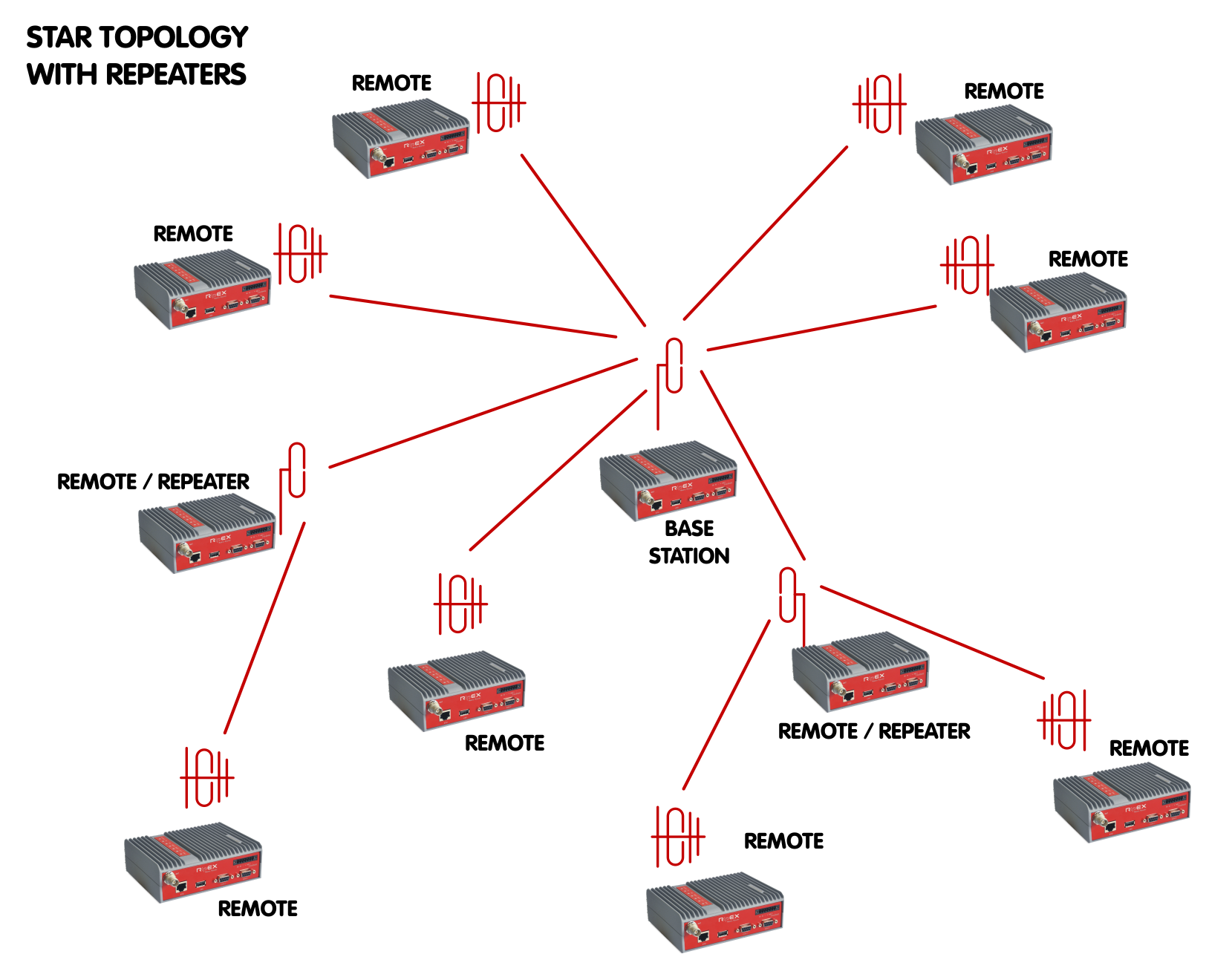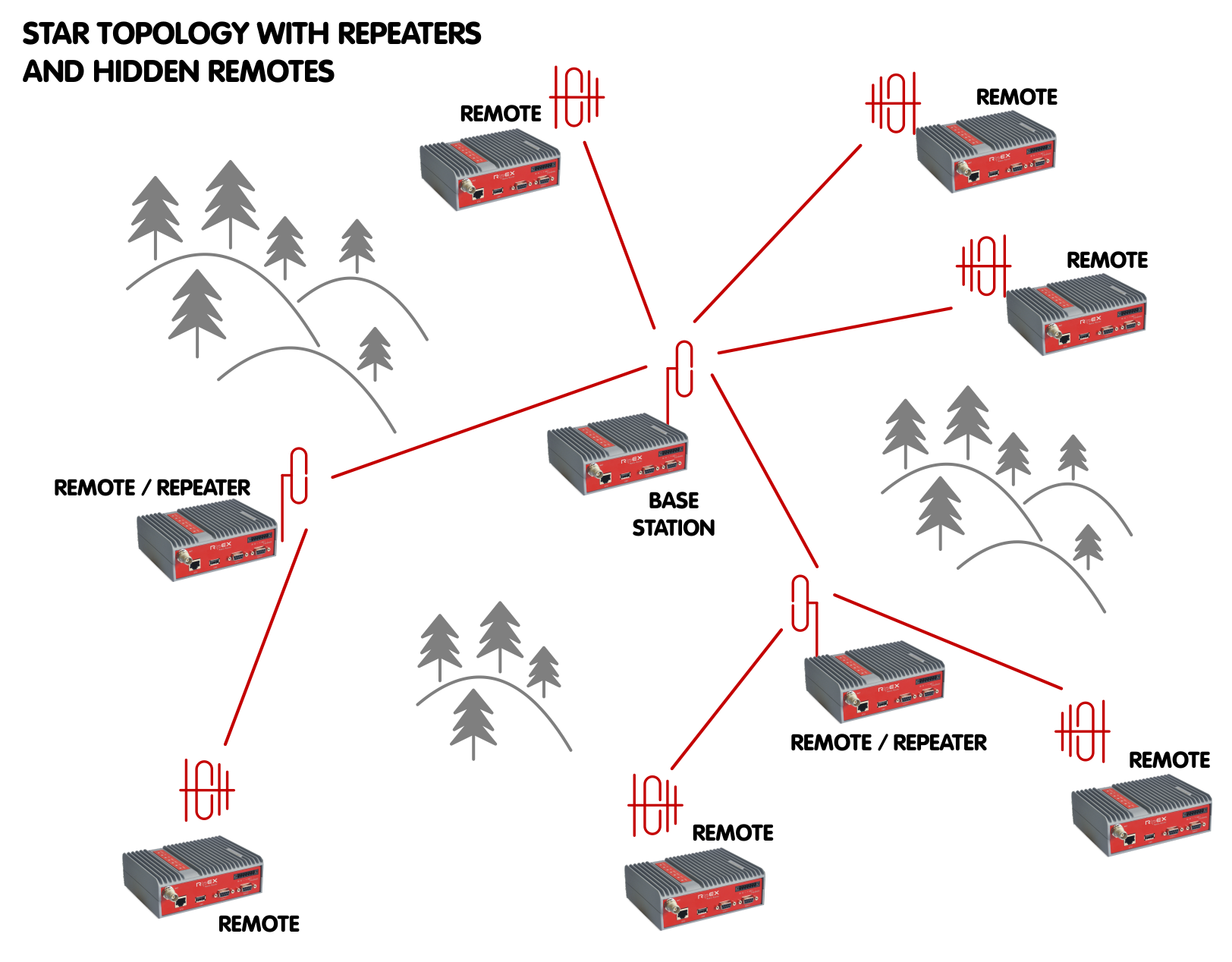Base Driven Protocol,
which is primarily optimized for TCP/IP (IEC104), is also suitable for collision networks when a remote is not be heard by other remotes and/or different Rx and Tx frequencies are used. All packet transmissions are managed by the local base station and distributed uniformly even when a high number of remotes are connected.
TCP/IP protocols like IEC104, used by modern RTUs, have historically created challenging problems because of limited throughput within narrowband radio data networks. Hence the reason RACOM has developed Base Driven protocol to solve the problem.
TCP/IP transparent
Optimized for IEC104
No TCP errors
No TCP disconnections
Tests confirm that the new RipEX ‘Base Driven’ protocol handles 5-10x more remotes under one base station and with higher reliability compared to others.
Hidden remotes
‘Hidden remote’ is a radio modem that is not heard by his neighbours. Modern SCADA networks are using more and more report-by-exception protocols, so ‘hidden remotes’ are creating problems, because common protocols on Radio channel are mostly based on Listen Before Transmit or Carrier Sense Multiple Access principles. Different Rx and Tx frequencies create the same issue in the network. RACOM Base Driven solves these problems.
No collisions even in difficult terrain
Suitable when different Rx and Tx frequencies are used
Fair access to Radio channel for all remotes
Channel capacity distributed fairly amongst all remotes
RipEX Base Driven protocol is revolutionising narrowband radio networks! Total user data throughput is significantly higher, creating much improved levels of stability and reliability!
For more details, see:
Application note Address planning
The following configuration example

